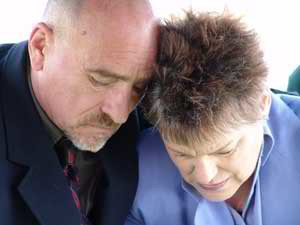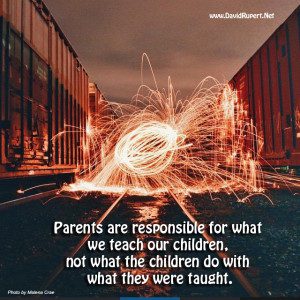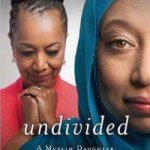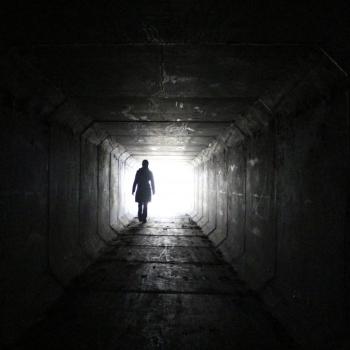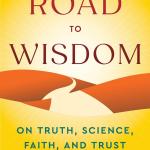“How could this child have come from us?”
I read the words of Arlene Holmes and my heart stopped. Her son is the young man who went on a rampage in the Aurora movie theater, killing 12 and wounding 70.
“Grief and alienation” is how the Denver Post describes the feelings of the parents of James Holmes. There is no disputing the fact that their son killed people without regard. The only thing left for the jury to decide is if he was crazy or a cold-blooded killer. Either of those are terrible conclusions for a parent.
Dylan Roof, who killed nine in a Charleston church forever impacted the families of the victims, also leaving his own family in disbelief. All they could do is extend their symathy and make a statement, “Words cannot express our shock, grief, and disbelief as to what happened that night. We are devastated and saddened by what occurred.”
The theater shooting happened in my city, which was also the home of the Columbine school shooting. The parents of Eric Harris and Dylan Klebold were equally horrified.
“It was impossible to believe that someone I had raised could cause so much suffering,” said Susan Klebod.
The New York Times interviewed the Klebolds and the interviewer, Andrew Solomon concluded this:
I began convinced that if I dug deeply enough into their character, I would understand why Columbine happened — that I would recognize damage in their household that spilled over into catastrophe. Instead, I came to view the Klebolds not only as inculpable, but as admirable, moral, intelligent and kind people whom I would gladly have had as parents myself.
We always look for answers and ask the question “Why” when it comes to tragedy. As I reasoned before, this is the one question that cannot be answered. Eventually, every criminal’s family is dragged into the spotlight. The grieving mother, the shamed father, the heartbroken grandmother all wring their hands and wonder, “what could we have done differently.”
When I watch the news of those who have gone astray I think of the mothers who are weeping, the fathers who hold their faces in their hands. Every teen pregnancy, every child who has entered a cult, every person who has turned on the faith of his father, brings anguish.
I have a pastor friend whose son is addicted to heroin. I have a friend whose daughter renounced her Christian faith and began a relationship with lesbian lover. You know the stories all too well – and maybe they are in your family.
It’s likely you haven’t raised a mass murderer or one has committed a terrible public crime. Still, you are disappointed. You can tick off the ways they have let you down, going against your beliefs, your customs, your family.
I don’t want to connect the Klebold family to your family situation — some leaps are simply too great. But we have all wondered at times, “where did I go wrong?”
Sins of the father, sins of the son
You are not alone! The number of perfect children in this world are far and few between. Job’s children rebelled. Gideon’s son killed dozens of his own siblings. Samuel’s sons didn’t walk with God. Neither did Eli’s. Some of David’s children were terrible. One was a king.
We seem to forget that we are not guilty for either the sins of the father nor the sins of the son. Ezekiel 18:20 reads, “The son will not bear the punishment for the father’s iniquity, nor will the father bear the punishment for the son’s iniquity; the righteousness of the righteous will be upon himself, and the wickedness of the wicked will be upon himself.”
Parents are responsible for what we teach our children, not what the children do with what they were taught.
I never killed anyone or committed a crime. But still, I disappointed my parents. I didn’t always make them proud. I wrecked their car once. I got into a fight. I lost a job.
And my siblings disappointed my parents. I have a brother who turned his back on them and let them go to their graves in heartbroken sadness.
And my children have disappointed me. While my chest puffs in pride, I still think they have made choices and suffered consequences that could have been avoided. As adults, I sometimes wish they would do things differently. But I try to give them the space they need to wrestle with life – and God – on their terms. My beliefs cannot be theirs. My values cannot be theirs. My faith cannot be theirs. It must come from their own depth and conviction.
My friend Patricia Raybon ** wrote a marvelous book, Undivided, about her relationship with her daughter who converted to Islam. Yes, she was disappointed, but she never quit loving her child. They have found a way to communicate, to learn, and to embrace their differences.
And that is your calling.
Love your daughter.
Love your son.
Love your God and let Him work.
** (Watch for an interview with Patricia in this space later this week)


